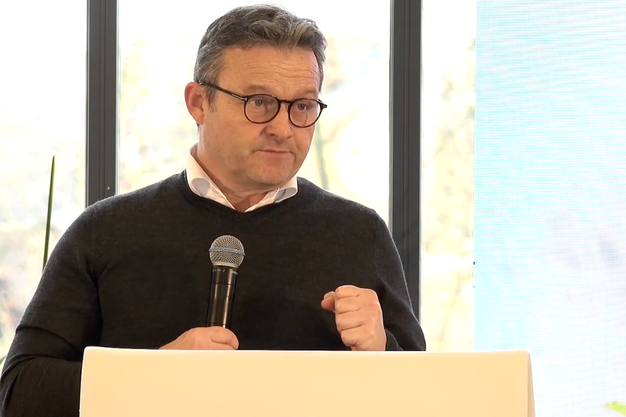Commonwealth U Master’s in Education Program Named Best in PA – Commonwealth University of Pennsylvania

Commonwealth University M.Ed. Program Advances SDG 4: Quality Education
Program Overview and Recognition
- Commonwealth University’s (CU) Master of Education (M.Ed.) in Curriculum and Instruction program has been recognized for its contribution to high-quality teacher training.
- The program was ranked No. 1 in Pennsylvania for 2026 by mastersineducation.org.
- This ranking underscores the program’s role in advancing the professional competencies of educators, a key component of Sustainable Development Goal 4 (SDG 4).
Direct Contributions to Sustainable Development Goal 4 Targets
- Target 4.c (Increase the Supply of Qualified Teachers): The program provides a direct pathway for educators to enhance their qualifications, allowing them to earn the 24 credits required for instructional licensure and a master’s degree simultaneously, thereby increasing the pool of highly qualified teachers.
- Target 4.3 (Equal Access to Quality Tertiary Education): As a 100% online program, it significantly improves access to quality tertiary education for working professionals, ensuring equitable opportunities for continuous professional development regardless of location.
- Target 4.1 (Equitable and Quality Education): By training educators in specialized areas such as alternative education and social wellness, the program equips them to create more inclusive, equitable, and effective learning environments for all students.
Program Features Supporting Educational Equity and Excellence
- The curriculum is designed to enhance the professional curricular and instructional competencies of individuals working with diverse learner populations, from children to adults.
- Specialized concentrations directly address the need for inclusive education:
- Alternative Education
- Social, Emotional, and Behavioral Wellness
- Optional certificate tracks equip educators with relevant skills for modern educational demands, supporting Target 4.4 (Relevant Skills for Employment):
- English as a Second Language (ESL)
- E-learning Specialist
- Instructional Game Design
- The program develops leadership skills and includes 12 customizable graduate credits, empowering educators to tailor their studies to professional goals that support quality education in their communities.
Institutional Perspective on Fostering Educational Leadership
- Dr. Jessica B. Hosley, program coordinator, stated that the program’s mission is driven by continuous professional improvement, engaging courses, diversity of thought, and caring faculty.
- This mission directly supports the development of effective teachers and leaders who are essential for achieving the ambitious targets of SDG 4 within the Commonwealth and beyond.
Analysis of Sustainable Development Goals in the Article
1. Which SDGs are addressed or connected to the issues highlighted in the article?
-
SDG 4: Quality Education
- The entire article is centered on education, specifically a Master of Education program at Commonwealth University. It discusses enhancing the quality of teaching and leadership through advanced training. The program’s goal to “enhance the professional curricular and instructional competencies of individuals” and “support the development of teachers and leaders” directly aligns with the core mission of SDG 4.
-
SDG 10: Reduced Inequalities
- The article mentions that the program offers concentrations in “alternative education and social, emotional and behavioral wellness” and an option to earn a certificate in “English as a second language.” These specializations are designed to equip educators with the skills to support diverse student populations, including those who may be marginalized or require different learning approaches. By training teachers to address these specific needs, the program contributes to creating more inclusive and equitable learning environments, which is a key aspect of reducing inequalities within the education system.
2. What specific targets under those SDGs can be identified based on the article’s content?
-
Under SDG 4: Quality Education
-
Target 4.3: By 2030, ensure equal access for all women and men to affordable and quality technical, vocational and tertiary education, including university.
Explanation: The article focuses on a Master of Education program, which is a form of tertiary education offered by a university. The fact that the program is “100% online” enhances its accessibility to working professionals, contributing to the goal of ensuring access to quality higher education. -
Target 4.c: By 2030, substantially increase the supply of qualified teachers, including through international cooperation for teacher training in developing countries…
Explanation: The program is explicitly designed to improve the qualifications of educators. It aims to “enhance the professional curricular and instructional competencies” and “support the development of teachers and leaders.” By providing advanced training and licensure credits, it directly contributes to increasing the supply of highly qualified teachers within the Commonwealth of Pennsylvania.
-
Target 4.3: By 2030, ensure equal access for all women and men to affordable and quality technical, vocational and tertiary education, including university.
-
Under SDG 10: Reduced Inequalities
-
Target 10.3: Ensure equal opportunity and reduce inequalities of outcome…
Explanation: By offering specialized training in “alternative education,” “social, emotional and behavioral wellness,” and for teaching “English as a second language,” the program prepares educators to effectively support students with diverse needs. This specialized training helps ensure that all students, regardless of their background or learning challenges, have a more equal opportunity to achieve positive educational outcomes.
-
Target 10.3: Ensure equal opportunity and reduce inequalities of outcome…
3. Are there any indicators mentioned or implied in the article that can be used to measure progress towards the identified targets?
-
Implied Indicators for SDG 4 (Quality Education)
- Number of qualified teachers: The program allows educators to “earn the 24 credits required for instructional licensure and a master’s degree simultaneously.” An implied indicator of progress towards Target 4.c would be the number of educators who graduate from this program, thereby increasing the pool of teachers with advanced qualifications and leadership skills.
- Availability of quality tertiary education programs: The article highlights that the program was “ranked No. 1 in Pennsylvania for 2026.” This ranking serves as a qualitative indicator of the quality of the tertiary education being offered, which is relevant to Target 4.3. The “100% online” format is an indicator of accessible program delivery.
-
Implied Indicator for SDG 10 (Reduced Inequalities)
- Number of educators trained to support diverse learners: The article states that the program offers concentrations and certificates in specialized areas like “alternative education,” “social, emotional and behavioral wellness,” and “English as a second language.” The number of teachers enrolling in and completing these specific tracks can be used as an implied indicator for measuring progress towards creating more equitable educational opportunities (Target 10.3).
4. Summary Table of SDGs, Targets, and Indicators
| SDGs | Targets | Indicators (Implied from the article) |
|---|---|---|
| SDG 4: Quality Education |
Target 4.3: Ensure equal access to affordable and quality tertiary education.
Target 4.c: Substantially increase the supply of qualified teachers. |
– Availability of high-quality, accessible (“100% online”) Master’s programs. – Program ranking (“No. 1 in Pennsylvania”) as a measure of quality. – Number of educators graduating with advanced degrees and licensure credits. |
| SDG 10: Reduced Inequalities | Target 10.3: Ensure equal opportunity and reduce inequalities of outcome. | – Number of educators trained in specialized concentrations such as “alternative education,” “social, emotional and behavioral wellness,” and “English as a second language.” |
Source: commonwealthu.edu
What is Your Reaction?
 Like
0
Like
0
 Dislike
0
Dislike
0
 Love
0
Love
0
 Funny
0
Funny
0
 Angry
0
Angry
0
 Sad
0
Sad
0
 Wow
0
Wow
0














































































